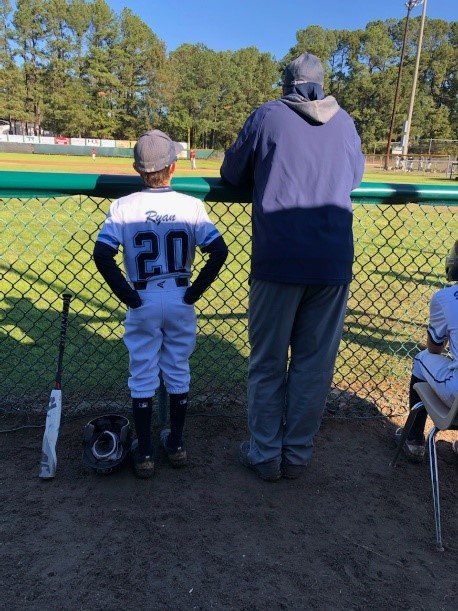Meet EPA Engineer Shawn Ryan, Ph.D.

Shawn P. Ryan, Ph.D. is a chemical engineer at EPA's Center for Environmental Solutions and Emergency Response. He has worked at EPA for 18 years, sixteen of which have been devoted to leading research to support decontamination and consequence management.
How does your science matter?
As the director of EPA’s Homeland Security Research Program, I have the honor of working with the world’s leading scientists and engineers devoted to solving our most complex environmental challenges. Our research prepares EPA to better respond to a chemical, biological or radiological incident. Through our research, we work to ensure that EPA has the capabilities and is prepared to effectively address the consequences of the intentional or unintentional release of chemical, biological, or radiological agents into our environment.
Most recently, our expertise has been focused on enhancing and developing capabilities to address the potential for environmental transmission of COVID-19. This research is helping states, tribes, local, and territorial governments, including public health agencies, guide businesses and institutions to reduce the risk of exposure to SARS-CoV-2 (the virus that causes COVID-19).
What do you like most about your research?
I like that I can see the immediate impact of the research. My colleagues and I get the opportunity to work with people daily who are implementing our research and the tools that we’re developing. We work together as researchers with our stakeholders from the beginning to understand the problem, come up with potential solutions, and to conduct the research to help reach a solution.
As an example, we are currently working together with New York City and Los Angeles to help develop solutions that can benefit the entire world on ways to reduce the risk of transmission of COVID-19 via surfaces that are frequently touched by different people. This research has pioneered the development of new methods to adequately assess the effectiveness of disinfection methods, including disinfectants that may provide long-lasting effectiveness. The passion and dedication of our research team - including colleagues from across EPA, in different Program Offices and Regions, and local government and private industry stakeholders – provides continual energy and motivation.
In the words of one of our stakeholders and research project partners, “It's a great feeling to be able to do this with you guys. While the previous work we've done on Biodefense is important, you all are letting us address a national emergency in real time. That is empowering and I thank you for it.”
Seeing our research reflected in our stakeholders’ decisions, making a difference, is extremely rewarding.
When did you first know you wanted to be a scientist?
I’ve been interested in science since my 9th grade earth science class. It was the first time I got to do experiments and see that I could learn different things about the world through experiments.

Dr. Ryan, with his son, in his favorite thinking spot: reflecting, teaching, and learning together.

If you could have dinner with any scientist, past or present, who would you choose and what would you like to ask them?
I would pick Benjamin Franklin because I admire how he learned through observation and developed solutions to personal problems he faced. For example, when he was getting older he started having problems with his vision, both seeing things far away and up close. So instead of switching between two pairs of glasses, he invented bifocals so he could see everything at once.
I’d ask him, what problems did he see that he couldn’t solve, and why not? I would like to know how he dealt with not being able to solve the problem. I would also like to ask him how he balanced science and politics. Did he consider himself a scientist in politics or a politician with a passion for science? Working as a scientist in the federal government, I feel like there is a lot that I could learn from his experience.
Tell us about your background.
I graduated from Rensselaer Polytechnic Institute, or RPI, in Troy, New York, with a bachelor’s of science degree in Environmental Engineering. I stayed at RPI to get my PhD in Chemical Engineering. I started at EPA as a post-doc working in the area of air pollution control – specifically understanding the formation of toxic pollutants during incineration and other thermal processes.
If you were not a scientist, what would you be doing?
That's an easy one! I would be coaching baseball and basketball full time. I have had the opportunity to teach through coaching basketball and baseball at the middle school and high school levels. I thoroughly enjoy having the chance to inspire our world’s future leaders through the lessons that we learn together via the challenges and opportunities that these sports offer.
Any advice for students considering a career in science?
The biggest thing you gain from school is how to learn. You can’t ever forget that. No matter what I do, I never feel like I’m an expert at it. I feel like I know a little and there is still a lot to learn. I constantly have to remember how to apply different tools that I’ve acquired over the years to solve problems. That is key for students to really pay attention to, how to use the resources that they have to solve problems and to remember that it’s something they will use for the rest of their lives.
Editor's Note: The opinions expressed herein are those of the researcher alone. EPA does not endorse the opinions or positions expressed.
